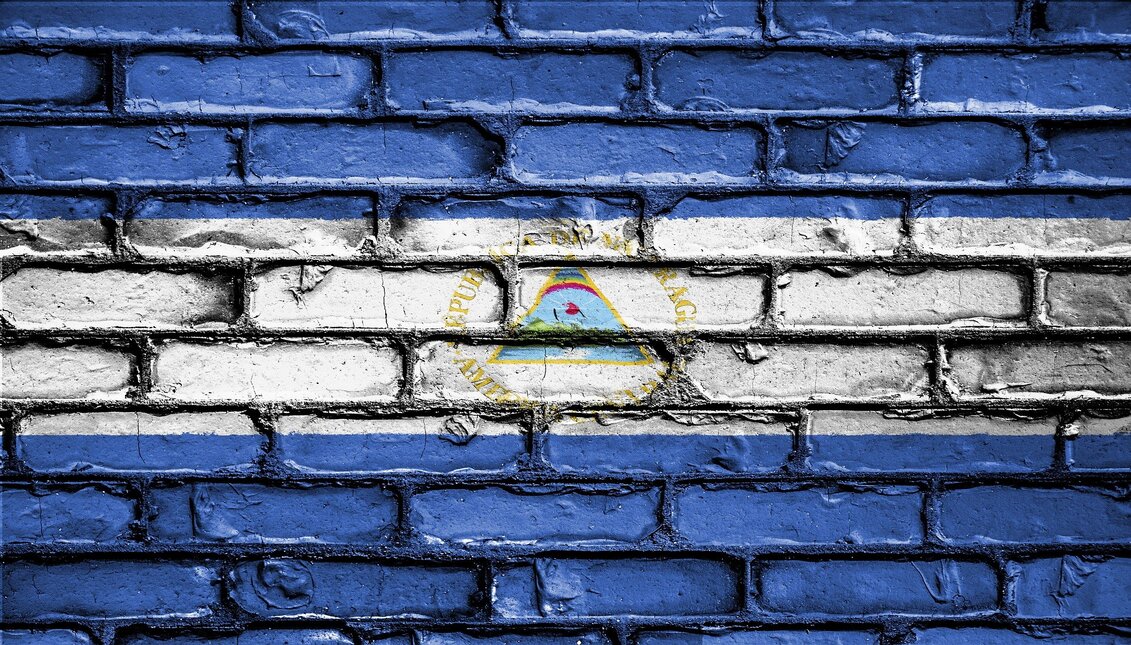
Human Rights Watch calls out “abusive detention conditions” in Nicaragua
The NGO presented a report in which it denounced the arbitrary detentions and the appalling living conditions of prisoners in Nicaragua.
According to the new evidence presented by Human Rights Watch (HRW), the situation of political prisoners in Nicaragua is becoming increasingly critical, as people of different origins and professions have been arbitrarily detained by the government and who, according to the report, are permitted restricted communication and must put up with abusive conditions of detention.
Apparently, being a critic of the government in Nicaragua is paid back with jail or forced disappearance. This is after the arrest of at least 36 critics so far in 2021 — people who were subject to criminal proceedings without due process and without any type of guarantee. The Public Ministry has accused them of "money laundering" and "conspiracy to undermine national integrity.”
“The speed with which the government of Daniel Ortega has carried out this wave of arrests before the November presidential elections, subjecting its critics to horrific conditions of detention, and accusing them of crimes without any basis or due process, reveals that Ortega does not have the slightest intention of losing the next elections,” denounced the director for the Americas of Human Rights Watch, José Miguel Vivanco.
En #Nicaragua, numerosos críticos y opositores de Ortega han estado incomunicados por meses, en condiciones de detención inhumanas, acusados de cometer delitos sin ninguna base y sin debido proceso.
— Human Rights Watch (@hrw_espanol) September 20, 2021
Deben ser inmediata liberados.https://t.co/yRYRXKiPsY
Nuevo informe @hrw_espanol pic.twitter.com/EdoRaHxHMG
Through telephone interviews conducted with 19 people since August who had information on 28 of the 36 cases, an attempt has been made to clarify the whereabouts and situation of those deprived of liberty. The report speaks of the complaints made by relatives of the detainees, who have had to wait months to visit and have warned of insufficient nutrition, prolonged isolation and various interrogations that happen daily in some cases without the presence of any lawyer. It is worth remembering that solitary confinement of more than 15 days are considered torture and are prohibited by international criminal law.
"The Ortega government must immediately and unconditionally release all political prisoners and the international community must redouble the pressure on the government to increase the cost of its abusive practices," emphasized Vivanco.
The report indicates that between May 28 and Sept. 6, the Ortega government has implemented a strategy of systematic arrests to facilitate his re-election for a fourth consecutive term in November.
Among those arrested are seven presidential candidates from opposition parties, and 29 outspoken critics of the government, including politicians, journalists, human rights defenders, students, community leaders, among others. Four of them are under house arrest, and 32 have been detained in the Directorate of Judicial Aid, known as “El Chipote,” where torture of Ortega's critics has been reported in the past.
"Request military interventions," "organize with financing from foreign powers to carry out acts of terrorism and destabilization," "demand, exalt and applaud the imposition of sanctions against the State of Nicaragua and its citizens," as well as "incite foreign interference in internal affairs,” are the alleged charges the Nicaraguan government has tried to use to justify the abuses of authority and attacks against democracy.
Because of a reform to the Criminal Procedure Code, prosecutors in Nicaragua are empowered to detain civilians for 90 days without the need to present an accusation, which has been used by the authorities to justify their arbitrary detentions.
RELATED CONTENT
The charge many critics have been prosecuted of during public hearings is that of "conspiracy to undermine national integrity," and the government has denied the accused the possibility of having a lawyer during the process while also rejecting defenders' access to court documents.
According to HRW, in examining the allegations, “prosecutors generally did not identify actions to substantiate the charges against the defendants. The acts mentioned were frequently behaviors protected by international human rights standards on freedom of expression and should not be criminalized.”
Likewise, in the documents consulted, “the prosecutors justified serious charges of undermining the national integrity of Nicaragua, relying exclusively on allegations that the defendants had given interviews to the media, shared WhatsApp messages, participated in meetings or signed letters in which they expressed their support for the sanctions against Nicaraguan officials, made a call for free elections or demanded international condemnation of the abuses committed by the government.”
According to Nicaraguan human rights organizations, more than a hundred people critical of the government have been detained and remain in abusive detention conditions, some with chronic diseases the government pays no attention to.
According to the HRW report, in most of the cases analyzed, the detainees were denied the right to meet with the lawyer of their choice, while decisions on their cases were made behind closed doors — something that goes against the Nicaraguan law.
“Until Aug. 30, the authorities held most of the detainees incommunicado, without family visits or the possibility of meeting with their lawyers, violating the provisions of the Constitution and the Code of Criminal Procedure of Nicaragua. The detainees were held incommunicado for between eight and 92 days. Despite the multiple appeals filed by the defenses, the authorities did not disclose information on the whereabouts or conditions of detention of most of these people,” the report concludes.










LEAVE A COMMENT: